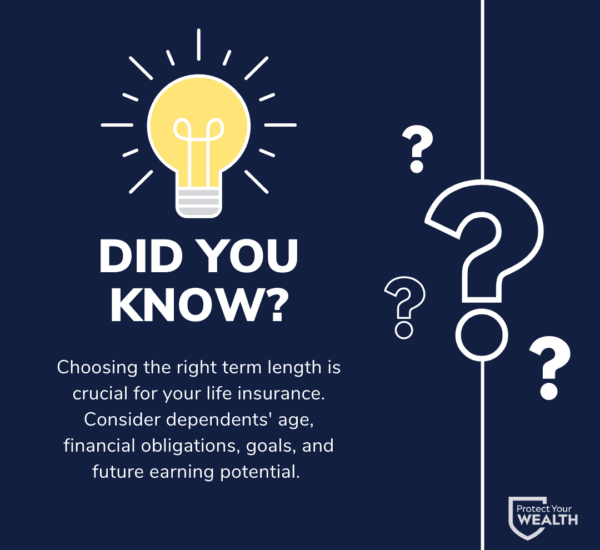The demand for Bachelor of Science in Nursing (BSN)-prepared nurses is surging across the United States, particularly in California. The American Association of Colleges of Nursing (AACN) reports a significant preference for BSNs among employers, impacting job prospects and salaries. RN to BSN online courses offer a flexible pathway to meet this demand, but balancing work and studies presents a considerable challenge for many nurses. This guide examines the options and considerations involved in pursuing this degree, specifically tailored for registered nurses in California.
Toc
- 1. Finding the Right RN to BSN Online Program in California
- 2. Understanding California’s RN to BSN Landscape
- 3. Related articles 01:
- 4. Curriculum and Learning Outcomes of Online BSN Programs
- 5. Addressing Specific Needs and Concerns
- 6. Related articles 02:
- 7. Current Trends in Nursing Education
- 8. Career Advancement and Salary Expectations with a BSN
- 9. Conclusion

Finding the Right RN to BSN Online Program in California
Selecting the right RN to BSN online courses is crucial for registered nurses in California looking to advance their careers. This section outlines the key factors to consider when choosing an online program that fits your professional goals.
Accreditation: A Key Consideration
Accreditation is paramount when evaluating RN to BSN online courses. Programs accredited by recognized bodies, such as the Commission on Collegiate Nursing Education (CCNE) or the Accreditation Commission for Education in Nursing (ACEN), ensure a quality education that meets established standards. For California residents, many institutions offer accredited programs, including the University of California, Los Angeles (UCLA) and California State University, Fullerton. Opting for accredited programs not only validates your education but also enhances eligibility for federal financial aid and credit transfers.
In addition to national accreditation, approval from the California Board of Registered Nursing (CBRN) is crucial. While national accreditation ensures a program meets general nursing standards, CBRN approval is essential for licensure in California. Therefore, when considering RN to BSN online programs, ensure they are recognized by CBRN to meet state-specific licensure requirements.
Furthermore, employers often prefer graduates from accredited programs, which can significantly impact your job prospects. Ensuring your chosen program has proper accreditation can provide peace of mind and enhance your resume in a competitive job market.
Program Length and Pace Options
The duration of RN to BSN online courses can vary significantly. Many programs offer flexible pacing options, including accelerated pathways that allow completion in as little as six months. For example, the 6-month RN to BSN program offered by the University of San Francisco is an excellent choice for those seeking a fast-tracked route. However, it’s essential to note that accelerated programs often require a greater time commitment per week to complete the coursework in a shorter timeframe. Conversely, traditional programs may take 8 to 12 months for full-time students. Evaluating personal commitments and choosing a program that aligns with your goals is essential.
When considering program length, it’s important to assess your current work schedule and personal life. Some students thrive in accelerated programs due to their focus and motivation, while others may prefer a more extended timeline that allows for deeper engagement with the material.
Cost and Financial Aid Opportunities
Tuition rates for RN to BSN online courses can differ widely. It’s important for prospective students to consider not only the tuition but also additional fees associated with the program. Researching the cheapest RN to BSN online options is advisable, as many California institutions offer financial aid opportunities, scholarships, and grants specifically for nursing students. Additionally, some programs provide military discounts or employer reimbursement options, making education more accessible.
Students should also explore federal financial aid programs and state-specific grants available for nursing students. Many schools offer financial literacy workshops to help prospective students navigate their options effectively, ensuring that finances do not become a barrier to achieving your educational goals.
As tuition costs continue to rise, understanding the implications of federal student loans is crucial. The interest rates on these loans can significantly impact repayment amounts after graduation. For more detailed information about federal student aid, visit the official website of the U.S. Department of Education.
Location and Accessibility
While many RN to BSN programs are entirely online, some may have local or regional requirements for clinical experiences. When searching for “RN to BSN programs near me,” it’s beneficial to identify programs that provide accessible practicum experiences. Many California-based online programs cater to local students, making it easier to fulfill clinical requirements while studying.
Understanding the location of your clinical experiences is vital. Some programs may have partnerships with local healthcare facilities, providing you with opportunities to gain hands-on experience without extensive travel.
State-Specific Licensing Requirements
California has specific requirements for registered nurse licensure that can affect your educational journey. It is crucial to familiarize yourself with these regulations to ensure your RN to BSN online program aligns with state licensure standards. Consulting the California Board of Registered Nursing’s website can provide valuable insights into these requirements.
Moreover, being aware of the continuing education requirements for maintaining your RN license is essential. Many RN to BSN programs incorporate these requirements into their curriculum, helping you stay compliant while advancing your education.
Understanding California’s RN to BSN Landscape
This section provides a detailed overview of the RN to BSN market in California, highlighting the opportunities and challenges within this landscape.
Market Demand
The demand for BSN-prepared nurses in California is on the rise. According to the Bureau of Labor Statistics (BLS), the projected job growth for registered nurses is approximately 6% from 2022 to 2032. This increase is largely driven by an aging population and the need for healthcare services, making it a prime time to pursue RN to BSN online courses.
Healthcare facilities are increasingly recognizing the importance of having a highly educated nursing workforce. Hospitals, clinics, and community health organizations are prioritizing BSN-prepared nurses to meet the complex healthcare needs of their patients. However, it is essential to acknowledge that while the demand for BSN-prepared nurses is increasing, some healthcare settings may still accept associate degree nurses (ADN) for specific roles. The overall trend, however, continues to lean towards a preference for BSN-prepared nurses.
2. https://xfaster.vn/mmoga-top-cyber-security-online-courses-for-career-changers/
3. https://xfaster.vn/mmoga-finding-the-best-divorce-attorney-austin-tx/
5. https://xfaster.vn/mmoga-launch-your-healthcare-career-with-billing-and-coding-online-courses/
Salary Expectations
BSN-prepared nurses in California can expect significantly higher salaries compared to their associate degree counterparts. The average salary for RNs in California is approximately $100,000, while BSN holders often earn upwards of $120,000, depending on their area of specialization and location within the state. It’s worth noting that salaries can vary significantly based on experience, specific employer, and geographical location within California. RNs working in metropolitan areas or specialized fields may earn even higher salaries, reflecting the diverse opportunities available to BSN graduates.
This salary disparity emphasizes the tangible benefits of obtaining a BSN degree through RN to BSN online courses. In addition to base salary, many BSN-prepared nurses have access to better benefits, including retirement plans, bonuses, and opportunities for advancement, which can further enhance their overall compensation package.
Career Advancement
Completing an RN to BSN program opens numerous career advancement pathways. BSN-prepared nurses can pursue roles in management, public health nursing, and specialized clinical positions. The skills gained from a BSN program, such as leadership and critical thinking, make graduates more competitive in the job market.
Moreover, many organizations are now implementing policies that require or prefer BSN degrees for nursing positions, further solidifying the value of obtaining a BSN in today’s healthcare environment. Organizations such as Kaiser Permanente and UCLA Health often prioritize hiring BSN-prepared nurses, which creates additional opportunities for those with this advanced degree.
Top Employers in California
Several major healthcare employers in California prefer or require BSN-prepared nurses. Notable organizations include Kaiser Permanente, Sutter Health, and UCLA Health. Understanding the preferences of these employers can guide your decision when selecting an RN to BSN online program.
Many of these organizations also offer tuition reimbursement programs for employees seeking to further their education, creating additional incentives for RNs to pursue their BSN degrees.
Curriculum and Learning Outcomes of Online BSN Programs
Exploring the curriculum of RN to BSN online courses is essential for prospective students. This section delves into the typical coursework and learning outcomes associated with these programs.
Core Courses and Specializations
The curriculum for RN to BSN online programs typically includes core courses such as leadership, health policy, community health, and evidence-based practice. These subjects are designed to enhance the competencies required for advanced nursing roles. Some programs also offer specialization options in areas like pediatrics, geriatrics, or mental health, allowing students to tailor their education to specific career goals.
In addition to core courses, many programs incorporate real-world case studies and simulations that prepare students for the complexities of modern nursing practice. This hands-on approach can significantly enhance your understanding and application of nursing concepts.
Clinical Requirements
While most RN to BSN programs include clinical requirements, options exist for minimizing on-site experiences. Some programs may offer community-based projects or virtual simulations to fulfill clinical experience requirements. If you are searching for “RN to BSN online no clinicals,” it’s important to note that while entirely clinical-free programs are rare, many online programs significantly reduce the need for in-person clinicals.
For those concerned about clinical placements, it’s advisable to inquire about the specific clinical requirements of each program during the application process. Understanding how each program approaches clinical education can help you make an informed decision.
Technology and Support
The technology utilized in online BSN programs plays a vital role in enhancing the learning experience. Most programs incorporate Learning Management Systems (LMS) that facilitate access to course materials, assignments, and communication with instructors. Additionally, many institutions provide robust support services, including academic advising, tutoring, and technical assistance, to help students navigate their online education effectively.
Students should take advantage of these resources, as they can significantly enhance your learning experience and provide the necessary support to succeed in an online learning environment.
Addressing Specific Needs and Concerns
This section addresses common questions and concerns prospective students may have regarding RN to BSN online courses.

RN to BSN Programs for Non-Nurses
Individuals without prior nursing education often wonder about options for entering the field. While traditional BSN programs usually require an RN license, pathways exist for those looking to start their nursing careers. Online BSN programs for non-nurses combine classroom instruction with clinical training, ultimately leading to RN licensure.
These programs are designed for individuals who may hold degrees in other fields but wish to transition into nursing. They typically cover foundational nursing concepts and skills, preparing students for the rigors of nursing practice.
Transferring Credits
Transferring credits from an associate degree program to an online BSN program can streamline the educational process. Many institutions have established guidelines for credit transfers, making it easier for students to transition into RN to BSN online courses. It’s advisable to consult with potential programs to understand their specific policies.
Understanding the transfer process can help you save time and money, allowing you to focus on completing your BSN and advancing your career.
1. https://xfaster.vn/mmoga-launch-your-healthcare-career-with-billing-and-coding-online-courses/
3. https://xfaster.vn/mmoga-top-cyber-security-online-courses-for-career-changers/
5. https://xfaster.vn/mmoga-finding-the-best-divorce-attorney-austin-tx/
Finding Affordable Options
When searching for the cheapest RN to BSN online programs, consider factors such as tuition rates, additional fees, and available financial aid. Many schools offer scholarships specifically for nursing students, which can help offset costs.
Additionally, some institutions may provide payment plans or financing options to make tuition more manageable. Exploring all available financial resources is essential to ensure that you can pursue your education without overwhelming financial strain.
Choosing the Best RN to BSN Online Courses
Determining the best RN to BSN online courses involves evaluating factors such as program reputation, faculty expertise, and student support services. Reading reviews and testimonials can provide insights into the experiences of past students, helping you make an informed decision.
Consider reaching out to alumni or current students to gain firsthand insights into the program’s strengths and weaknesses. This information can be invaluable in your decision-making process.
Current Trends in Nursing Education
As the healthcare landscape evolves, so too does nursing education. This section discusses two significant trends impacting RN to BSN online courses and nursing practice.
The Rise of Telehealth
The increasing use of telehealth is transforming nursing education and practice. Many RN to BSN programs are incorporating telehealth-related coursework to prepare graduates for this evolving healthcare landscape. According to a report by the American Hospital Association, telehealth use surged during the COVID-19 pandemic and has continued to grow, with nearly 76% of hospitals reporting increased telehealth services.
As telehealth becomes an integral part of healthcare delivery, nurses must be equipped with the skills and knowledge to navigate this technology effectively. Programs that offer training in telehealth practices, technology, and patient communication are becoming increasingly valuable for prospective nursing students.
Emphasis on Diversity, Equity, and Inclusion (DEI)
There is a growing emphasis on diversity, equity, and inclusion (DEI) within nursing education and the healthcare industry. Many programs are actively working to improve DEI initiatives, recognizing the importance of a diverse workforce in providing culturally competent care. Prospective students may want to consider a program’s commitment to these values when selecting an RN to BSN online course.
By fostering an inclusive environment, nursing programs can better prepare graduates to serve diverse populations and address health disparities within communities.
Career Advancement and Salary Expectations with a BSN
Obtaining a BSN through RN to BSN online courses significantly enhances career prospects and earning potential. This section focuses on the benefits associated with earning a BSN.
Salary Increases
Research indicates that BSN-prepared nurses tend to earn higher salaries than those with an associate degree. In California, the average salary increase for BSN-holders can be upwards of $20,000, reflecting the enhanced opportunities available to those who pursue further education. However, it is important to note that salary can vary based on experience, location within California, and specific employer, creating a range of salaries rather than a single figure.
Moreover, as healthcare organizations continue to emphasize the importance of higher education in nursing, BSN-prepared nurses may also have access to additional bonuses and incentives, further boosting their overall compensation.
Job Advancement Opportunities
BSN-prepared nurses have access to a variety of career paths, including management positions, public health roles, and specialized clinical roles. The advanced skills gained through a BSN program prepare graduates for leadership roles within healthcare organizations, making them more competitive candidates.
Many organizations are now implementing policies that require or prefer BSN degrees for nursing positions, further solidifying the value of obtaining a BSN in today’s healthcare environment. As a result, graduates can expect to find numerous opportunities for advancement in their careers.
Pathways to Advanced Practice
A BSN serves as a stepping stone toward advanced nursing degrees, such as a Master of Science in Nursing (MSN) or Doctor of Nursing Practice (DNP). These advanced degrees open doors to specialized roles, including nurse practitioners, nurse anesthetists, and nurse midwives, further expanding career opportunities for BSN graduates.
Pursuing an advanced degree not only enhances your knowledge and skills but also positions you for leadership roles within the healthcare system. As the demand for advanced practice nurses continues to grow, obtaining a BSN is a strategic move for those looking to advance their careers.
Conclusion
This article has provided a comprehensive guide to RN to BSN online courses, specifically focusing on the needs of working registered nurses in California. By carefully considering factors like accreditation, cost, curriculum, and career goals, you can choose a program that aligns with your individual needs and sets you on the path to career advancement. As you embark on this journey, be sure to stay informed about current trends in nursing education and the evolving healthcare landscape. Start your search today and take the next step toward a fulfilling and rewarding career as a BSN-prepared nurse. Explore our resources for a list of accredited RN to BSN online programs in California.










